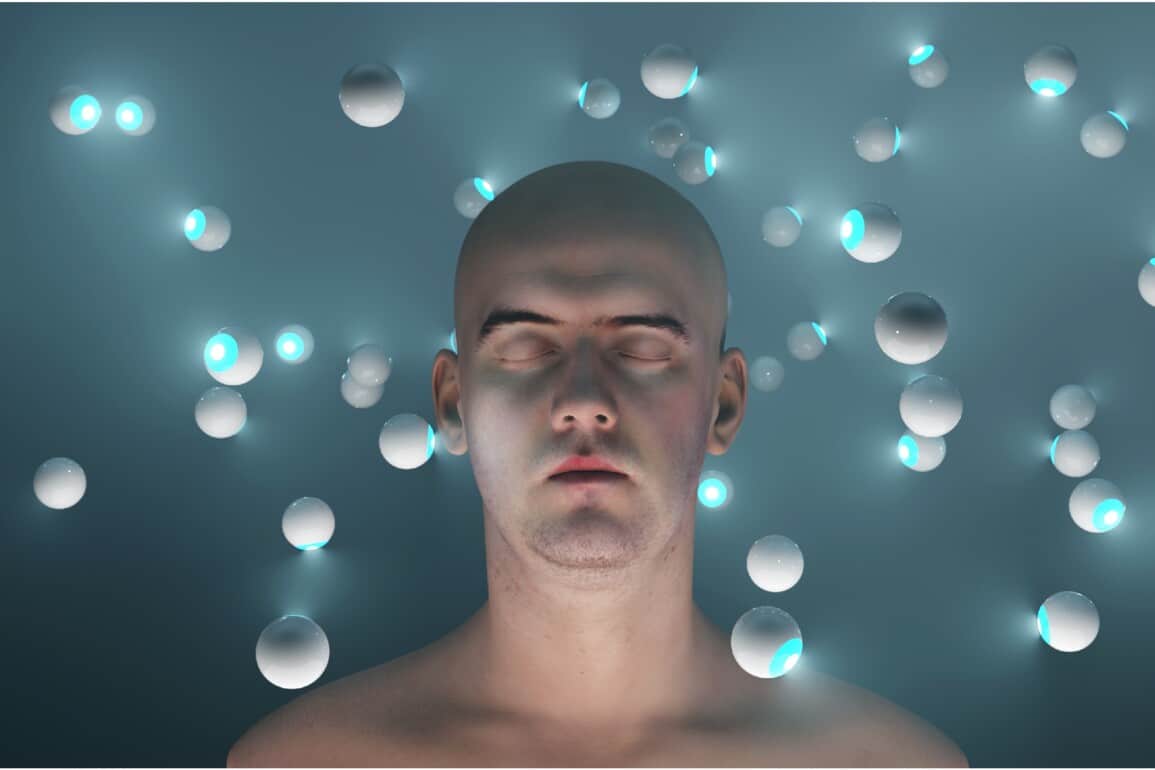While doctors don’t always directly prescribe Zanaflex for sleep, the use of this muscle relaxant can reduce symptoms of insomnia in patients with severe muscle spasms. Today we’re going to look into the pros and cons of Zanaflex for sleep.
Available under the name Tizanidine (generic), or Zanaflex, this medication is primarily given for the control of muscle spasms for people with spinal cord injuries, multiple sclerosis, and muscle spasticity.
Since severe muscle hypertonia causes significant pain, leading to problems like sleep disturbances and reduced sleep quality, the reduction of pain would naturally improve the chances of a better night’s sleep.
However, muscle relaxants aren’t an ideal treatment for insomnia among most people. Issues like Zanaflex hallucinations and other Tizanidine side effects have prompted patients to question the efficacy of their treatment for sleep problems.
Tizanidine dosage for sleep: Is Zanaflex a sedating drug?
The connection between Zanaflex and insomnia treatment is common for people with muscle spasticity issues. As a muscle relaxant, Tizanidine is naturally beneficial for promoting sleep, because it helps the muscles to relax, and places the body in a state suitable for rest.
Crucially, muscle relaxants aren’t generally prescribed specifically for insomnia. Most doctors will prefer to explore other treatment options first, before resorting to products like Zanaflex. If your doctor does prescribe muscle relaxants for insomnia, the question of “How much tizanidine should I take for sleep”, will be answered with an examination of your medical situation.
Usually, only a small amount of Zanaflex will be required to cause drowsiness. Your doctor will also recommend staying away from alcohol when using this medication. The combination of alcohol and muscle relaxants can lead to significant side effects.
What is Zanaflex good for? How it works
Though not the go-to treatment for insomnia, Zanaflex is widely regarded a reliable, safe, and effective drug for the treatment of muscle spasticity and severe muscle pain.
The medicine belongs to a class of drugs known as alpha-2-adrenergic agonists. These drugs work by reducing the activity in the nerves of the spinal cord (responsible for controlling the muscles).
Alternatively, other drugs for insomnia might work by reducing the amount of cortisol in your system or helping to increase the amount of melatonin in your body.
Tizanidine can significantly reduce chronic pain and discomfort when used correctly. Zanaflex works well for sleep as well as muscle pain, because it helps the body to relax. It’s getting rid of the issue causing you to stay awake (the pain).
According to reports, chronic pain and insomnia are highly prevalent conditions affecting up to 25% and 10% of the population(respectively). These conditions occur commonly together, with up to 80% of chronic pain patients also suffering from sleep issues.
Medications like Zanaflex, which can tackle both pain and insomnia at the same time, can be useful in reducing the risks involved in combining multiple medications.
According to studies, Tizanidine does typically cause drowsiness in the majority of patients. One report administered the medication to 21 quadriplegic children with muscle spasms and severe sleep disturbances not addressed by common conventional therapies.
The researchers found over 61% of patients were able to improve their sleep patterns with the use of Zanaflex. Additionally, there were no significant side effects.

Zanaflex hallucinations: What are the Tizanidine side effects?
All medications have the potential to cause side effects, including Zanaflex. Tizanidine hallucinations are the most significant cause for concern among a lot of patients. This medication can occasionally cause delusions (believing in things that aren’t real) and visual hallucinations. Though these side-effects aren’t extremely common.
Many patients taking Zanaflex have also complained of other potential issues, like unusual nightmares when they’re trying to sleep. The most common side effects of Tizanidine aren’t particularly severe, and can usually diminish over time, once your body gets used to the medication. These side-effects include:
- Diarrhea or constipation
- Dizziness or lightheadedness
- Drowsiness or sleepiness
- Dry mouth
- Fatigue
- Increased spasms in the muscles
- Signs of muscle damage (pain or tenderness)
- Symptoms of low blood pressure – like fainting
- Signs of liver problems (vomiting and loss of appetite)
- Allergic reactions
As with all medications, if you encounter any worrying side effects when taking Tizanidine, you should speak to your doctor about your options.
Although Zanaflex is a valuable treatment for some people – it won’t be the right option for everyone. Your doctor is unlikely to give you this medication if you’re predisposed to conditions like liver damage, or low blood pressure.
How long does Tizanidine stay in your system?
If you’re using Zanaflex for sleep, your main concern may be around having continued symptoms of drowsiness or sleepiness long after you’re supposed to be waking up. Most people looking for help with insomnia also want their solution to have no negative impact on their alertness the morning after. Unfortunately, this can be quite difficult to accomplish.
According to experts, the mean effective half-life is around two hours, but you may notice side effects for longer than this. Particularly if you’re just getting started with your new medication.
Zanaflex can also take a little while to balance out in your system. It takes around 4 days for you to see the full effects off the medication. This may be when your doctor checks-in for a review of your experience.
If you’re concerned about having muscle weakness after using Tizanidine for sleep, you can consider speaking to your doctor about alternative treatment methods. If you’re using this medication specifically for insomnia, there should be other alternatives available.

What’s the link between Tizanidine and alcohol?
In general, it’s best to avoid taking any sleeping medication with alcohol. Drugs designed to help with insomnia can have a direct impact on your ability to focus, and your cognition.
Alcohol also makes it harder to concentrate and can cause impairments to your thought processes and decision-making skills. Consuming alcohol with any medication is likely to make the feelings of drowsiness caused by your medication more intense. It can also increase the risk of side effects.
It’s particularly dangerous to consume muscle relaxants and alcohol at the same time, as this can prompt a higher risk of seizures, slowed or difficult breathing, and even problems with your motor control.
There have been cases of people abusing muscle relaxants and alcohol in the past, which is one of the reasons why doctors prefer to avoid prescribing these medications today.
Some of the most common side effects of taking alcohol and muscle relaxants at the same time include:
- Dizziness or inability to balance
- High risk of overdose
- Unusual behavior
- Memory problems
- Nausea
- Increased risk of liver issues
- Increased risk of kidney problems
Since alcohol can increase the amount of tizanidine that stays in your body for a longer period of time, it can be harder to shift your drowsiness too.
Notably, Zanaflex can also interact negatively with other medications. Make sure you share all the medications you’re taking (prescribed and otherwise) with your doctor before you begin this treatment. It could be dangerous to take multiple medications at the same time without your doctor’s guidance.
Should you take Zanaflex for sleep?
Zanaflex is best prescribed as a solution for muscle spasms and extreme muscle pain caused by spasticity. This medication does have potential as a sedating drug for people with insomnia. That said, it can be a lot more dangerous than other sedating substances with similar effects.
The risk of Tizanidine hallucinations and other issues generally means doctors will avoid prescribing this substance. It will only be prescribed if it’s deemed to be necessary for your condition.
If your doctor does suggest using Zanaflex for the management of your condition, it’s important to follow the guidelines provided by your medical professional on how to use the substance correctly. Do not take more medication to try and make yourself fall asleep faster and avoid taking your medicine with alcohol.
If you feel you’re not getting the right results from Zanaflex for sleep, or you’re worried about the side effects you’ve experienced so far, speak to your doctor as soon as possible.
Siestio. Sleep Matters.
Medical disclaimer
You must not rely on the information provided on our website as an alternative to medical advice from your doctor or other healthcare professionals. For more information read our full disclaimer here.







